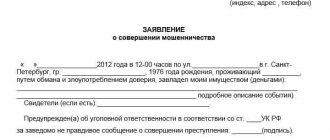Online fraud is commonplace and can affect any service. As a rule, the goal of scammers is to obtain money or personal data from the user. Skype scammers use simple scams, but people often fall for them. To protect yourself, you need to know in what ways money can be stolen. Then the user will understand in advance that he is dealing with a scammer and will not fall for his tricks.
Extortion
The classic way to scam money on Skype is extortion. To do this, the scammer needs to either hack into someone else’s contact, or introduce himself as some high-ranking official. Attackers can be very convincing. You won’t even think that there is a completely different person on the other end of the line.
Typically they play the role of:
- friend;
- police officer;
- bank employee;
- civil servant;
- mobile operator.
The roles are different, but the result is the same – extortion. At the same time, they can use such sophisticated schemes that naive users themselves will reveal their first name, last name, phone number and bank card.
For example:
Hello! Do you remember me. Help! My daughter is in the hospital with a severe form of cancer. I urgently need money for an operation.
Another variant:
Hello! Police officer Onishchenko says. Your son, while drunk, hit a pedestrian. If you want him to stay out of jail, transfer the money to “such and such an account.”
Popular divorce schemes:
- your phone is dead, you need to top up your account;
- a relative accidentally killed someone, you need to get him out of prison;
- the card is blocked, data is needed for verification;
- Funds for surgery are urgently needed.
Usually, in a state of passion, a person begins to think poorly and transfers money. Well, how can you not help your friend’s daughter? Or my son. However, everyone forgets to ask the security question. Or call the bank's hotline. If your son (daughter, brother, etc.) is in prison, you need to ask: “Which prison? What district? Who is in charge of the case? Then call them back.
That is, in this case there is only one way out. First, calm down. Then make decisions with a clear head.
Beware: Internet scammers on Skype!
In fact, our heroes became victims of Internet scammers who have a very indirect relationship with famous information businessmen.
The fraud scheme is quite simple:
- The fraudster searches in the catalog of products sold through services such as glopart.ru and e-pay.club for those whose seller lists Skype for communication.
- Next, the scammer creates one or more identical Skype accounts (with the same photo and personal information as the seller). The only non-obvious difference that can be noticed only by a very attentive user: the fake Skype address differs from the address of the real seller in a small detail - for example, a period, comma or other punctuation mark at the end.
- So, the scammer creates fake Skypes and waits around the clock for inattentive potential buyers. And because When you enter the seller’s Skype address in the search bar, fake accounts are also displayed, then in this situation it is very difficult not to get confused.
It is worth noting that the scammers who watch out for inattentive buyers on Skype are very cunning and, as a rule, use reasonable arguments to persuade a person to make a purchase not through a secure payment system, but directly. For example, they offer to buy the same course at a significant discount , or they accuse the real author of fraud and tell a pitiful story about how pirates stole their course and put it on Glopart (or another payment service). Further, it is usually reported that the real course can only be purchased here and only by paying for it by direct transfer to such and such a wallet.
And the gullible buyer pays and thus becomes a victim of an Internet scammer.
Links to suspicious sites
In this case, scammers play on curiosity. “Shh... Guy. Come here! There are so many delicious things here. Almost for free! Get it quickly before it's sold out." Typically, the link leads to one-day pages with malicious software (software). As a result, the computer or phone becomes infected with viruses that disable the system.
Possible consequences:
- hacking accounts on social networks and instant messengers;
- blocking the operating system (OS);
- using a computer or telephone to send spam;
- theft of information;
- failure of programs, frequent freezing and system slowdown.
Attention! Recently, scammers often use other people’s software for so-called cryptocurrency mining. The system is simple. The computer becomes infected with a virus. After this, the program begins to mine cryptocurrency directly from the victim’s computer. Mining requires a lot of power, so the OS starts to freeze a lot, and the hardware fails after a week or a month.
Therefore, you should not switch to dubious resources. Especially if they offer native Russian “freebies”.
Blackmail via virtual cupcake
Sometimes virtual pleasure ends in very sad consequences. It's good to be open to experimentation. However, you should still beware of random connections. Because on the Internet, it is lonely and unconfident people who become victims.
There are several development options here.
- The girl offers to play role-playing games and immediately demands an advance payment. After which it disappears. And you are left without money and without pleasure.
- After the “fun start”, they blackmail you with a video from Skype and promise to make you a Pornhub star.
- In the midst of the fun, she may declare that she is a minor and will now go to write a complaint to the police.
It’s clear that no one wants to become a Pornhub star or end up in jail. However, there is a way out.
Firstly . Before the session, turn on the recording yourself. You don't have to show your face. You can also play popular music in the background. Typically, YouTube and other platforms remove such content due to copyright infringement.
Secondly . According to Russian, Ukrainian and Belarusian legislation, no one will go to prison. If she presented herself as an adult on the recording. Or, even if she is under 18, she still looks like an adult. Punishment follows only in case of direct contact with a minor.
Thirdly , do not make any advance payments to unknown persons.
What should I do if I transferred money?
If you did transfer money, hurry up and contact the bank. If the fraudster did not manage to withdraw the funds, you can mark the payment as erroneous and return your money back to the card.
Alternatively, you can go to the police and file a report. Additionally, we recommend contacting specialists who will monitor the progress of this case.
If you find yourself a victim of fraud or blackmail via Skype, schedule a consultation with us. We will tell you what to do in this situation, help you file a police report and monitor the progress of the case.
Extracting personal data while downloading a program
If you download Skype from unofficial sources, there is a risk of ending up on a fake site. To upload a file, scammers may require your full name, passport details, card number, CVV code, etc.
Now attention! Skype is a free program. It can be downloaded directly. You just need to provide your email or phone number.
Since developers never force:
- send SMS in response to notifications;
- buy a license;
- provide personal information, registration, card number, CVV code.
Attention! The program has paid services. However, they are activated at the request of the user. If you need to call via Skype to landline or mobile phones within the country or abroad. Each package has its own tariff and payment system.
In any case, you should first carefully study the instructions for using the software. Only then install it on your computer or phone.
Spam
Fraudsters do not always introduce themselves as relatives or acquaintances. Spambots can distribute information and offer certain services. Unfortunately, annoying advertising is a very profitable business. According to statistics, companies earn about $15 billion a year. Therefore, they will buy databases, push these advertisements and make money from ordinary users.
On the one hand, what's the difference? Well, a person wants to promote some store. Why not? Maybe he has a really good product. Unfortunately, 80% of spam are fraudulent resources that receive money through fake payment systems.
These include:
- chain letters (pay 100 rubles and win a million);
- fake stores (they send goods without an inventory, as a result they receive a brick instead of a phone);
- financial pyramids (analogues of MMM);
- cheap cryptocurrency mining on dubious sites.
This is just the beginning. The main thing is to get hooked. Make you believe that with a minimal investment you can make a profit of 400%.
Therefore, the best protection against such links is good protection and complete ignoring of spam.
If you still have doubts, you should take a closer look at the resource.
- Never make advance payments. If you win a prize and are asked to pay a commission, we recommend that you ignore such offers.
- When receiving a product, you should always check it. Preferably under cameras right at the post office. If employees forbid you to do this, it means the goods were sent without an inventory. That is, senders do not want you to open the mailbox. In this case, feel free to refuse to receive the parcel and send it back at the sender’s expense.
- Check your bank details. All payment systems have a home page, details and a license from the Central Bank. It is usually easy to check such pseudo pages. We remove everything unnecessary in the URL. We leave only a link to the main page. Usually it turns out to be empty.
The main thing is to remember. Free cheese only comes in a mousetrap. No one will ever give money to anyone just like that. You need to be careful and not believe every counter letter.
Cheat No. 7: stand still, hands behind your head, money in your account
The tricks of criminals are evolving, an example of this is duplication fraud. The “police” sends you a message with assurances that they will protect you from online scoundrels if they want to steal. The price of “protection” is 1000 rubles. Then the villains appear, for example, the libertine from deception No. 3, whose “hook” you fall for. And she demands 2000 rubles from you.
What to do? Write in such a timely manner to the law enforcement agencies that have appeared! 1,000 rubles were transferred to the account of “defenders of law and order,” and the extortionist renounces her claims to your money. Problem solved, except that the courtesan and the "police" are working together.
How to avoid being scammed
Even if you ignore spam and do not respond to external stimuli, the system will still be vulnerable. Because they somehow found out about your Skype number. Now he needs to be protected.
To make it less likely for scammers to use your profile, it is enough to fulfill the following conditions:
- install the latest version of the antivirus and update it;
- use a complex password (at least 8 Latin letters with lower and upper case, numbers, special characters);
- disabling automatic document acceptance;
- checking basic information;
- only personal communication with friends (if you suspect that a friend has been hacked, you should ask him a leading question);
- exclude all strange strangers from the list;
- Do not tell anyone your card numbers and passwords (even messenger employees).
The main thing is common sense. Emotions can only do harm.










